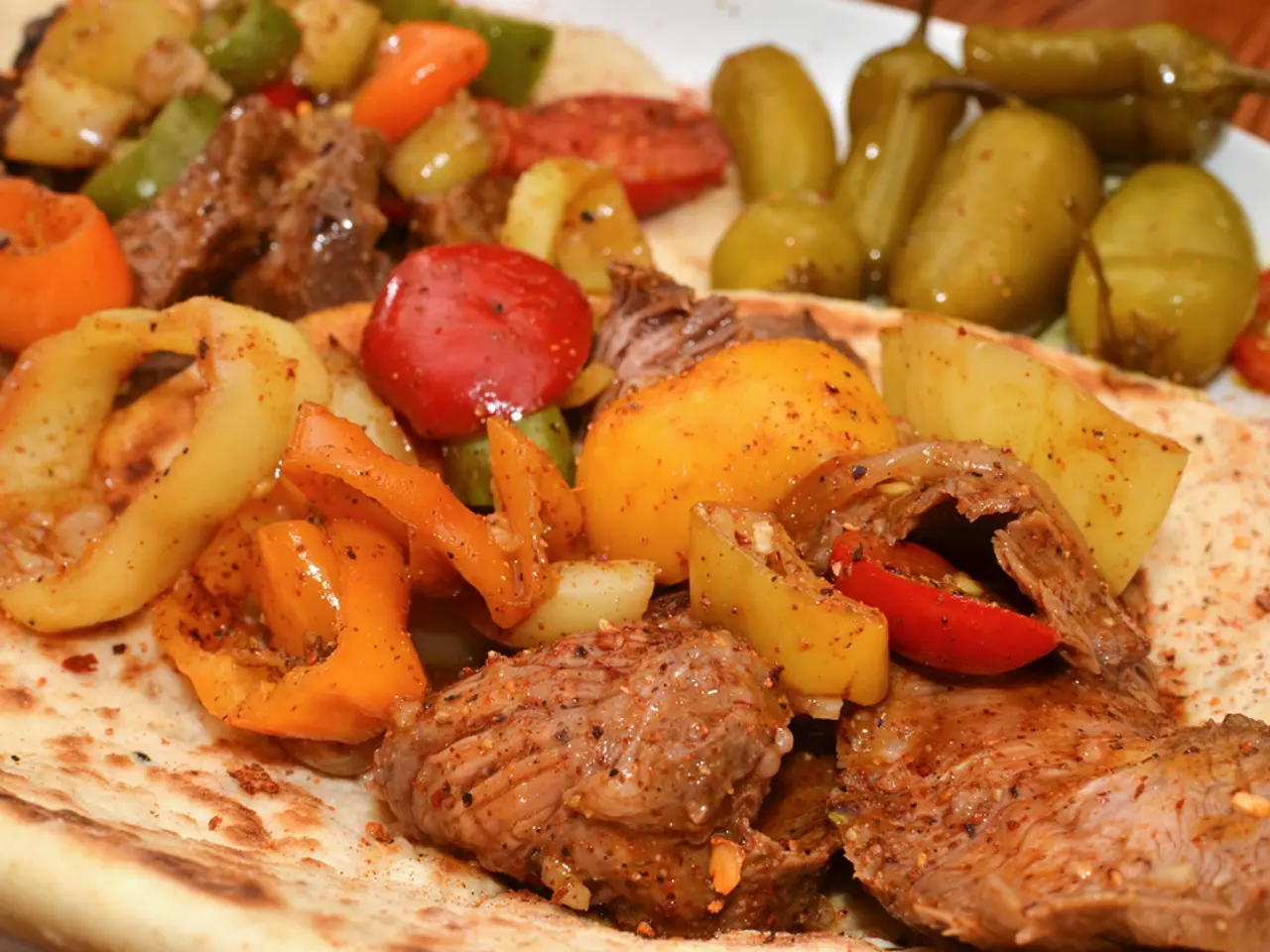Common sources of food poisoning: six frequent offenders
In the realm of food safety, it's essential to be aware of the high-risk foods that can potentially lead to foodborne illnesses. Here's a rundown of some common culprits and tips to help you stay safe.
Meat and poultry, particularly cooked meat or poultry that is not cooked to the right internal temperature, pose a significant risk. For instance, chicken should reach 165°F, while beef and lamb should reach 160°F to kill bacteria such as Salmonella. Undercooked or raw meats, including beef, chicken, pork, and seafood, are especially risky.
Eggs, especially those used in raw dishes like mousse or mayonnaise, are another high-risk food. All eggs and egg-based dishes should be handled with care to avoid contamination.
Seafood, raw or undercooked, can harbour harmful bacteria or parasites. It's crucial to ensure seafood is cooked thoroughly before consumption.
Dairy products, such as raw milk and soft cheeses, can carry Listeria, particularly dangerous for pregnant women and immunocompromised individuals.
Salads and vegetables can also be contaminated, especially if washed or handled improperly. Produce like cantaloupe with deep skin grooves is prone to bacterial growth like E. coli.
Cooked rice, pasta, and noodles can become high risk if left at room temperature too long, allowing bacteria to multiply.
Ready-to-eat foods like deli meats, pâtés, and prepared salads can be contaminated if not stored properly.
Gravies, soups, and stews can rapidly grow bacteria if kept at unsafe temperatures.
In the summer, burgers, hot dogs, deviled eggs, and fruit plates that are not properly refrigerated or handled increase the risk of food poisoning.
Common foodborne pathogens include Salmonella, E. coli, Campylobacter, and Listeria, among others. The risk increases enormously when foods are left in the "danger zone" between 40°F and 140°F where bacteria multiply rapidly.
To reduce the risk of food poisoning, follow these simple guidelines:
1. Cook meats and eggs thoroughly. 2. Store perishable foods in the fridge promptly. 3. Wash fruits and vegetables before eating. 4. Avoid cross-contamination by handling raw and cooked foods separately and washing hands frequently.
By adhering to these guidelines, you can significantly reduce the risk of food poisoning. Stay safe and enjoy your meals!
- To maintain food safety, always cook eggs thoroughly in dishes to eliminate the possibility of infection, especially in raw preparations like mousse or mayonnaise.
- In the realm of cooking, be aware that undercooked or raw meats, such as beef, chicken, pork, and seafood, are high-risk foods and can potentially lead to foodborne illnesses.
- Seafood, whether raw or not fully cooked, should be handled with care to avoid hazardous bacteria or parasites, ensuring it's been thoroughly cooked before consumption.
- Dairy products, particularly raw milk and soft cheeses, can carry dangerous bacteria like Listeria, especially harmful for pregnant women and individuals with compromised immune systems.
- In the pursuit of health-and-wellness, nutrition, and maintaining a lifestyle that promotes food-and-drink well-being, it's crucial to store prepared foods like deli meats, pâtés, and prepared salads properly to avoid contamination.




